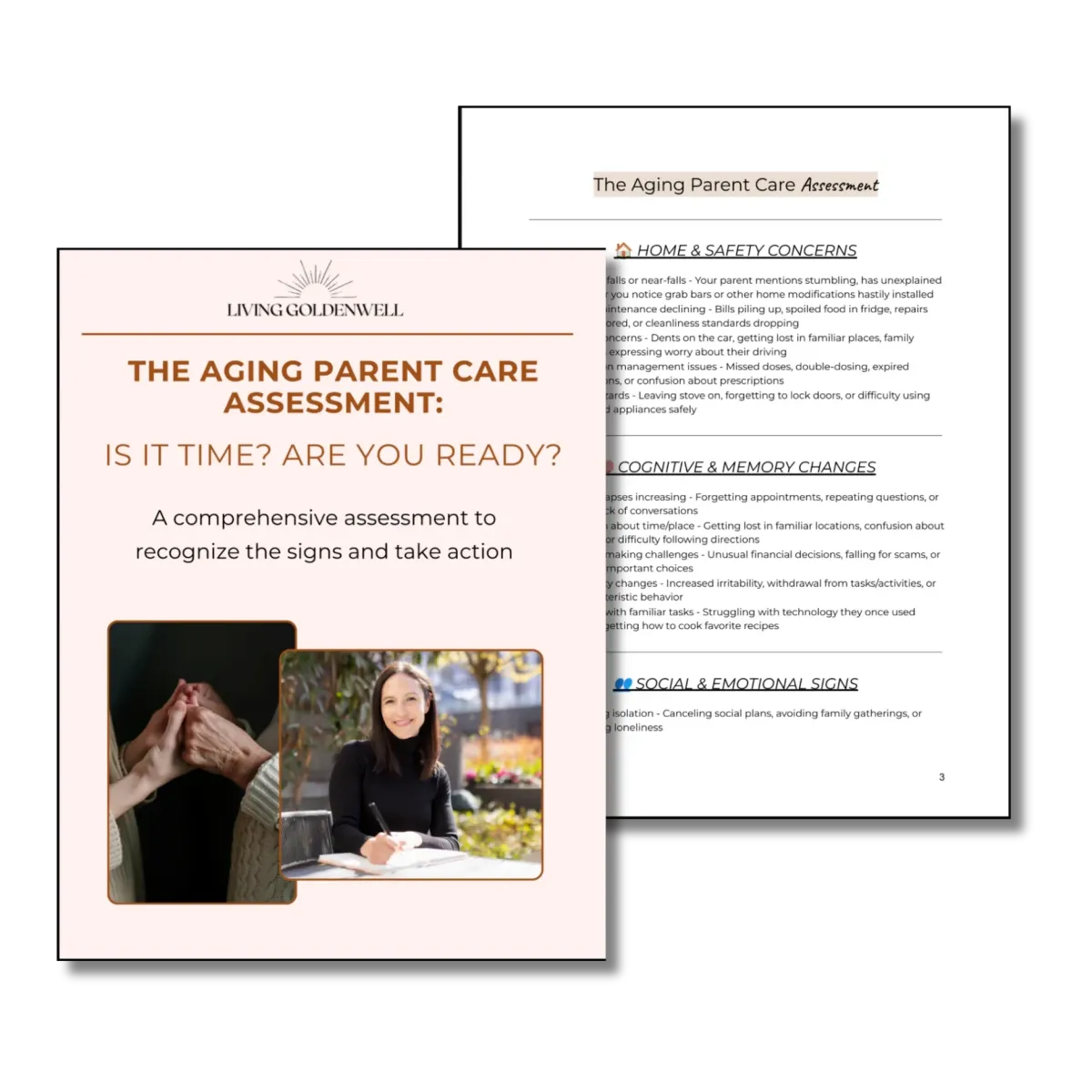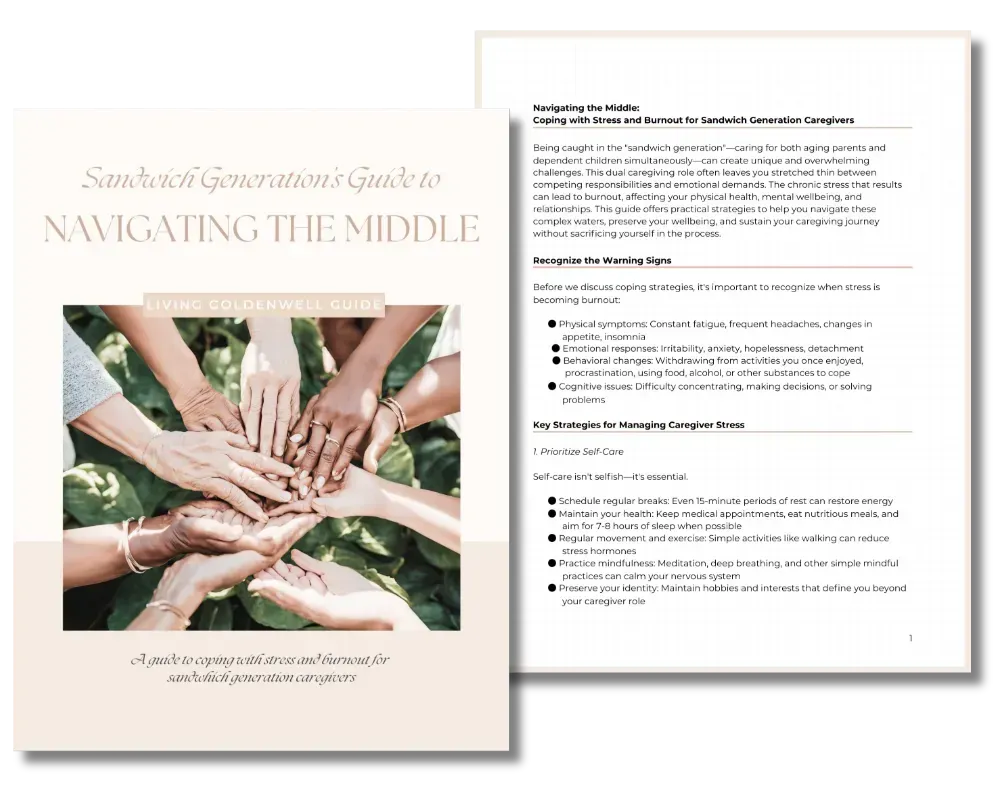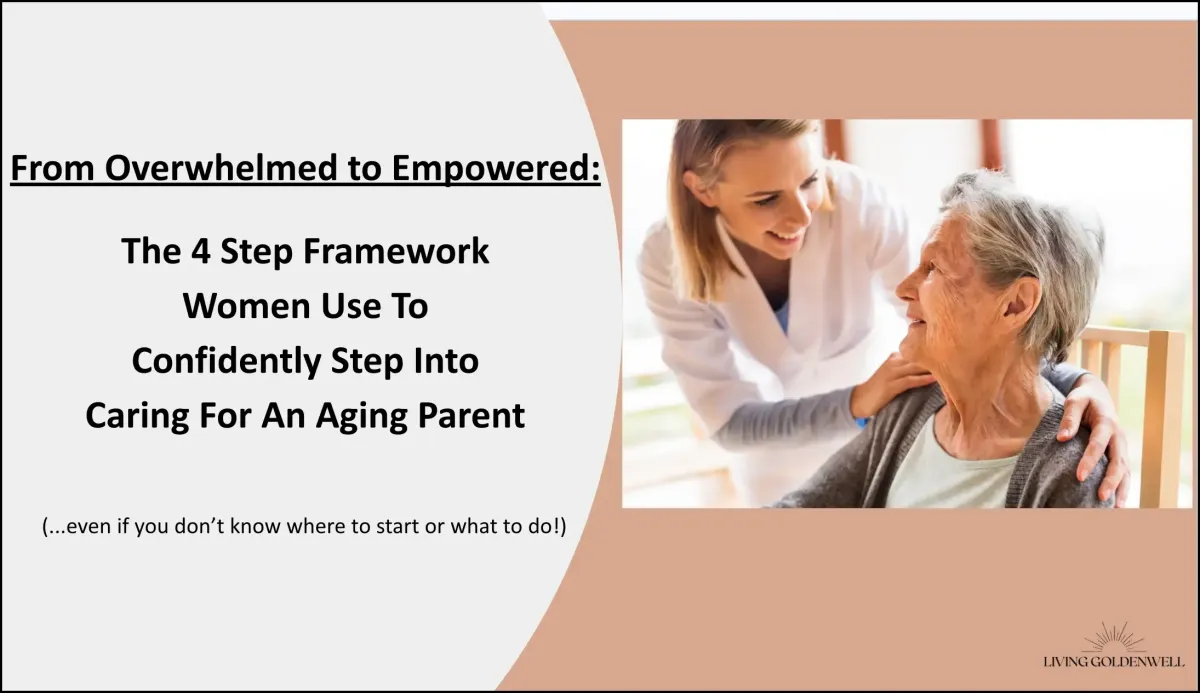
Normalizing Caregiving Conversations at Work
Breaking the Silence on Caregiving at Work
In today’s workplaces, caregiving is everywhere — but it’s rarely discussed. One in five Americans is a caregiver for an aging parent or loved one, yet most employees stay silent about it, fearing judgment, lost opportunities, or being perceived as “less committed.” This silence comes at a cost: caregivers suffer in isolation, organizations lose talent, and the workforce misses the chance to lead with compassion and clarity.
It’s time to normalize caregiving conversations in the workplace. By naming what so many women are experiencing, we begin to reshape workplace culture — turning hidden burdens into shared challenges, and isolation into leadership.

The Reality of Working Caregivers
Professional women in their 30s, 40s, and 50s are navigating the demands of careers, parenting, and caring for aging parents. For many, the pressure is relentless.
Nearly 70% of family caregivers report difficulty balancing work with care.
One in three ultimately leaves the workforce because the strain becomes unsustainable.
Women lose not only wages, but also career momentum, retirement savings, and health.
When workplaces treat caregiving as a private issue, women carry the load alone. But when conversations are normalized, they gain flexibility, support, and room to thrive.
Why Silence Hurts Everyone
Silence around caregiving in the workplace creates three critical problems:
Employees burn out. Caregivers fear speaking up, so they stretch themselves until health and performance suffer.
Organizations lose talent. High-potential women leave roles or turn down promotions, costing companies billions in turnover and lost productivity.
Care remains undervalued. Without dialogue, caregiving stays invisible — seen as a distraction, rather than the essential social infrastructure it is.
The solution is not simply offering benefits. It begins with conversation — the courage to name caregiving, to validate it, and to make it part of the workplace dialogue.
How Leaders Can Normalize Caregiving Conversations
Normalizing doesn’t require an overhaul of policy. It begins with everyday leadership choices:
Speak from the top. Senior leaders can acknowledge caregiving as a reality in company-wide messages, signaling that it’s safe to talk about.
Integrate into meetings. Managers can check in with employees and ask about life outside work — not as small talk, but as recognition.
Create peer networks. Employee groups or Slack channels give caregivers a place to connect, share strategies, and feel less alone.
Train for empathy. Leaders can learn simple conversation starters: “I know caregiving can be complex. How can we support you right now?”
When leaders show vulnerability and openness, employees mirror it — and the culture begins to shift.
What Professional Women Can Do
For women navigating eldercare, there is power in initiating the conversation. While it can feel risky, sharing strategically can open the door to flexibility and support. Consider:
Identifying one trusted leader or mentor to confide in.
Preparing a clear ask: “I may need flexible scheduling on certain days. Here’s how I’ll make sure my work stays on track.”
Framing caregiving not as a weakness, but as a leadership skill — because managing eldercare requires strategy, resilience, and advocacy.
By speaking up, you not only support yourself — you pave the way for others to follow.
Checklist: How to Start Normalizing Caregiving at Work
Leaders: share your own caregiving story, or acknowledge the caregivers in your team.
Teams: make space in meetings to ask about life outside of work.
Employees: prepare a strategic way to share your caregiving reality.
Organizations: provide flexible schedules and build caregiver networks.
Everyone: remember that silence costs more than conversation ever will.
Caregiving is not a distraction from work — it is a reality of modern life, and it’s time workplaces recognized it. When conversations about caring for aging parents and loved ones become the norm, professional women can bring their whole selves to work without fear of judgment. Leaders keep their talent. And families benefit from stronger, healthier caregivers.
At Living Goldenwell, we help women move from overwhelm to empowerment by giving them the clarity, strategy, and voice they need — at home and at work. Here’s how to take the next step:
Watch my free masterclass on what thriving caregivers do differently
Book a call with me to talk through your unique caregiving situation
Enroll in the Caregiving From The Middle program for personalized strategy, coaching, and community
Your voice matters. Your caregiving story matters. And normalizing these conversations is the first step to creating workplaces — and lives — that truly support the women who hold so much together.






